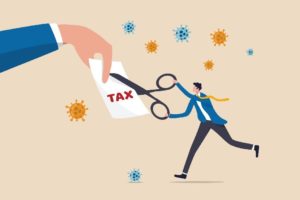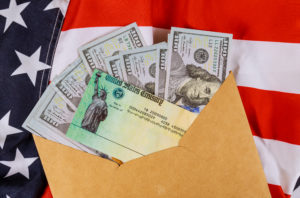What Do You Do When You Owe Taxes But Don’t Have the Funds?
For many people tax season brings the joy of a nice big refund to go out and splurge on something they’ve had your eye on for a long time. On the flip side of the equation are those people who surprisingly, or not, end up owing the IRS money. Not only do these people miss out on the extra cash influx, but they also have to come up with the funds to pay off the extra tax bill.
For some people, depending how high the bill is, they could have to pay even more than just the shortage amount. That’s because many times when people underpay they end up owing penalties for the underpayment. For those who owe a lot of money, those penalties could end up being huge. In fact, the penalties can even be much higher than the shortage.
That’s why it’s always best to try to avoid owing any money to the IRS, especially if you don’t have the funds to pay it off when the tax bill comes due. So what happens to people who can’t pay their tax bill? You do have a few options.
In some cases, it might be a good idea to take out a loan or a line of credit in order to pay off the bill. Of course, you will then be responsible to pay off the loan, so use caution. Another option is to apply for an extension with the IRS. This could buy you a little time to come up with the needed funds. If you need even more time then try applying for a hardship extension, which could give you up to six months to pay it off. You could also ask the IRS for permission to set up a payment plan to pay off the debt in installments.
Whichever path you decide to take, make sure you do something. Don’t ignore the problem or it will only get worse. The penalties will likely increase the longer you wait and the IRS could eventually take other measures or even press charges. So the bottom line is: do something.
How IRS Can Help Business Owners Hurt by COVID Disaster
How IRS Can Help Business Owners Hurt by COVID Disaster Quick Summary: Disaster Area Declaration – Internal Revenue Code Sec. 165(i) Disaster losses in the current year can be taken on a prior year’s return (i.e., 2020 losses stemming from COVID-2019 can be taken on the 2019 return) The loss/deduction would need to be substantiated by…
Why You Should File Your 2019 Tax Returns ASAP!
Why You Should File Your 2019 Tax Returns ASAP? Many individuals, couples, and businesses are putting off filing their 2019 tax returns because; they can. Others, because they qualify for stimulus checks in 2018 but not 2019; it’s not 100% clear yet that this is a good idea. Either way, April 15th and many other…
COVID – 19 Relief Status Update 04.06.20
‘Phase 4’ stimulus wish lists floated
https://ne…
Corona Virus Relief (CARES ACT)
Today we’re talking all about the Corona Virus Re…



